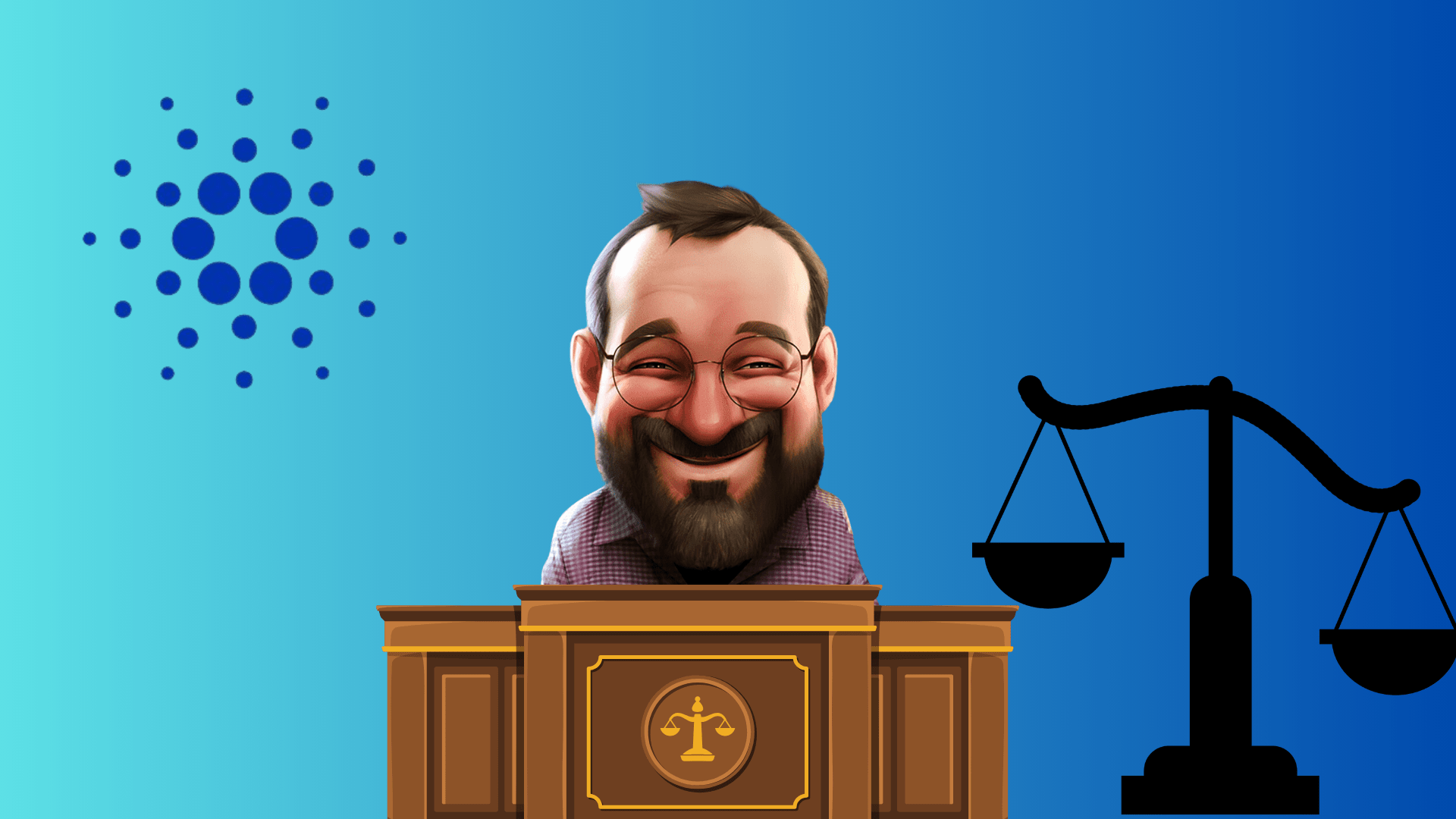Cardano founder Charles Hoskinson says he wants to help the United States establish a crypto-friendly regulatory regime once President-elect Donald Trump returns to the White House. He believes he can play a central role in the process, helping to facilitate conversations between prominent figures in the crypto industry and Trump’s “Crypto Czar”.
Hoskinson’s comments came during an interview with COTI founder and CEO Shahaf Bar-Geffen, where he explained that the U.S. has fallen far behind other, more forward-thinking nations in Europe, the MiddleEast and Asia. He points out that countries like Israel and Japan has already established progressive regulations to foster the growth of crypto, whereas the U.S. has taken a much more hostile stance towards the industry.
That will change under Trump, Hoskinson said. “The current President created this situation, but the upcoming President, Trump, wants to fix it,” he said. “So he’s going to appoint a Crypto Tzar, he’s going to work with the Senate and Congress now that there’s a unified government, and he’s going to appoint a pro-crypto SEC chair and CFTC chair.”
Crypto Industry Must Step Up Now
It’s not yet clear who Trump will turn to as his Crypto Czar. For days, it was said that ex-PayPal Chief Operating Officer David Sacks was the front-runner to land the job, but it’s said that he has since been sidelined due to his refusal to fully divest from his investment firm, Craft Ventures.
Nonetheless, Hoskinson said Trump’s promise to hire somebody to take control of the crypto industry is a major step towards the U.S. introducing a more accommodating regulatory environment.
What the crypto industry needs to do is take the initiative, and start looking at new ways in which emerging technologies like decentralized finance, decentralized autonomous organizations and smart contracts can be better regulated.
“The industry has an obligation to use the next 6-9 months wisely, to have a discussion about what executive orders, administrative changes and law-making needs to be done to create a framework that’s workable for everybody,” Hoskinson stated.
U.S. Risks Being Sidelined Without Regulation
Hoskinson, who first came to prominence in the crypto industry when he helped to create the Ethereum network almost 10 years ago, is adamant that the U.S. needs to take action soon, or risk falling behind in what will eventually grow to become “a $10 trillion to $20 trillion industry.” He said the existing uncertainty has forced too many crypto projects to ignore the U.S. market and focus their efforts elsewhere, in countries with friendlier crypto regulatory regimes.
COTI is one of those projects, Hoskinson said. He noted that it has made real strides in other countries like Israel, where it’s working with that country’s central bank on its “Digital Shekel” initiative.
“COTI is worth about a quarter of a billion dollars today, and that entire ecosystem can’t touch the U.S.,” he said. “That’s one of thousands of stories globally, and think of all the value that would bring to the U.S. And think of the value the U.S. can bring to these projects.”
Hoskinson accused the outgoing Biden administration of arbitrarily cutting off the entire crypto industry. And that forced the industry to do the same. “People basically said draw a ringfence around the U.S. and pretend it’s radioactive and don’t touch it,” he said. “They said, never have a U.S. customer. It’s pretty devastating.”
Fortunately, Hoskinson believes it’s not too late for the U.S. to reverse its stance, and in his opinion it can still become the best country in the world in which to establish and operate a crypto business. What’s required to get there is a fundamental shift in the way the U.S. government approaches financial innovation, he said, and he’s confident that will happen under Trump.
“I think the team Trump is putting together is quite competent, quite capable,” he said. “I believe there’s a strong possibility that not only the U.S. people, but also international entrepreneurs, will be able to interact with that team and create a global framework that the IMF can understand, the FATIF can understand, that foreign regulation can interoperate with.”
The “Connector-In-Chief”
This is where Hoskinson thinks he can play a useful role, helping to formulate that framework. He told Bar-Geffen that he sees himself as a “connector-in-chief”, using his contacts with the industry and the U.S. government, facilitating conversations between policymakers and international crypto experts.
As part of his plans, Hoskinson said he is working with various other people to send out a survey to major U.S. crypto companies, so he can provide that feedback to the Crypto Tzar and other key leaders in the Senate and Congress. The idea is that the industry will be able to say, off the record, “What’s the good, what’s the bad and ugly, and what do we need to fix.”
“I’m going to bring in people from abroad, who would normally be excluded from the U.S. political process, and have them talk to U.S. lawmakers and talk to the administration to share problems they have already solved in many cases,” Hoskinson explained. “People from the ADGM in Abu Dhabi, for example, or people from FINMA in Switzerland and the Monetary Authority of Singapore.” Hoskinson admitted that this would be quite a revolutionary step for the U.S., as the country tends to do the opposite, regulating things at home before pushing its ideas outbound.
“The world is ahead of us, so it’s time we learn from them and don’t replicate any of their mistakes,” he added. “Trump has made the mandate very clear. He wants the U.S. to be the best country in the world to found and run a cryptocurrency business or a blockchain business.”
Disclaimer: This article is provided for informational purposes only. It is not offered or intended to be used as legal, tax, investment, financial, or other advice.

